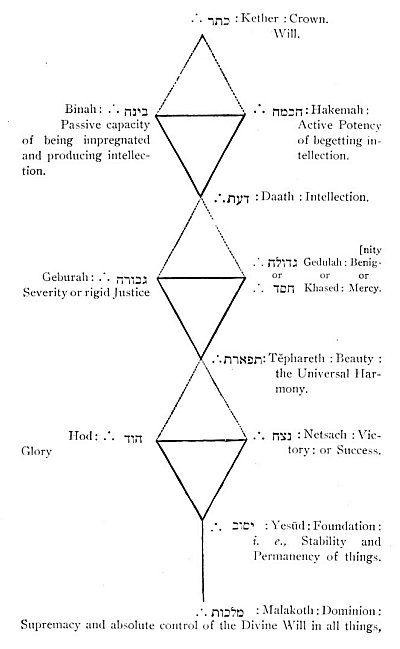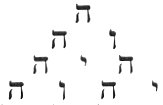And yet Zoroaster added: “Measure not the journeyings of the Sun, nor attempt to reduce them to rule; for he is carried by the eternal will of the Father, not for your sake. Do not endeavor to understand the impetuous course of the Moon; for she runs
p. 612
evermore under the impulse of necessity; and the progression of the Stars was not generated to serve any purpose of yours.”
Ormuzd says to Zoroaster, in the Boundehesch: “I am he who holds the Star-Spangled Heaven in ethereal space; who makes this sphere, which once was buried in darkness, a flood of light. Through me the Earth became a world firm and lasting–the earth on which walks the Lord of the world. I am he who makes the light of Sun, Moon, and Stars pierce the clouds. I make the corn seed, which perishing in the ground sprouts anew. . . . I created plan, whose eye is light, whose life is the breath of his nostrils. I placed within him life’s unextinguishable power.”
Ormuzd or Ahura-Mazda himself represented the primal light, distinct from the heavenly bodies, yet necessary to their existence, and the source of their splendor. The Amschaspands (Ameschaspenta, “immortal Holy Ones”), each presided over a special department of nature. Earth and Heaven, fire and water, the Sun and Moon, the rivers, trees, and mountains, even the artificial divisions of the day and year were addressed in prayer as tenanted by Divine beings, each separately ruling within his several sphere. Fire, in particular, that “most energetic of immortal powers,” the visible representative of the primal light, was invoked as “Son of Ormuzd.” The Sun, the Archimagus, that noblest and most powerful agent of divine power, who “steps forth as a Conqueror from the top of the terrible Alborj to rule over the world which he enlightens from the throne of Ormuzd,” was worshipped among other symbols by the name of MITHRAS, a beneficent and friendly genius, who, in the hymn addressed to him in the Zend-Avesta, bears the names given him by the Greeks, as the “Invincible” and the “Mediator”; the former, because in his daily strife with darkness he is the most active confederate of Ormuzd; the latter, as being the medium through which Heaven’s choicest blessings are communicated to men. He is called “the eye of Ormuzd, the effulgent Nero, pursuing his course triumphantly, fertilizer of deserts, most exalted of the Izeds or Yezatas, the never-sleeping, the protector of the land.” “When the dragon foe devastates my provinces,” says Ormuzd, “and afflicts them with famine, then is he struck down by the strong arm of Mithras, together with the Devs of Mazanderan. With his lance and his immortal club, the Sleepless Chief hurls down the Devs into the dust, when as Mediator he interposes to guard the City from evil,”
p. 613
Ahriman was by some Parsee sects considered older than Ormuzd, as darkness is older than light; he is imagined to have been unknown as a Malevolent Being in the early ages of the world, and the fall of man is attributed in the Boundehesch to an apostate worship of him, from which men were converted by a succession of prophets terminating with Zoroaster.
Mithras is not only light, but intelligence; that luminary which, though born in obscurity, will not only dispel darkness but conquer death. The warfare through which this consummation is to be reached, is mainly carried on through the instrumentality of the “Word,” that “ever-living emanation of the Deity, by virtue of which the world exists,” and of which the revealed formulas incessantly repeated in the liturgies of the Magi are but the expression. “What shall I do,” cried Zoroaster, “O Ormuzd, steeped in brightness, in order to battle with Daroodj-Ahriman, father of the Evil Law; how shall I make men pure and holy?” Ormuzd answered and said: “Invoke, O Zoroaster, the pure law of the Servants of Ormuzd; invoke the Amschaspands who shed abundance throughout the seven Keshwars; invoke the Heaven, Zeruana-Akarana, the birds travailing on high, the swift wind, the Earth; invoke my Spirit, me who am Ahura-Mazda, the purest, strongest, wisest, best of beings; me who have the most majestic body, who through purity am Supreme, whose Soul is the Excellent Word; and ye, all people, invoke me as I have commanded Zoroaster.”

Moe is the founder of GnosticWarrior.com. He is a father, husband, author, martial arts black belt, and an expert in Gnosticism, the occult, and esotericism.






